
Do you have what you need to make your garden grow?


Garden Center
Store Hours
Mon-Sat:
6:00am - 10:00pm
Sun:
8:00am - 8:00pm
Curbside:
09:00am - 6:00pm
Location
Popular at Your Garden Center
Summer Popular Garden Supplies and More
Explore June Live Plants
Garden Project Calculators
;Resize=(703,395.44))
Grass Seed Calculator
When you're ready to seed your lawn, our calculator helps you estimate the amount of grass seed you'll need to get the job done.
;Resize=(703,395.44))
Mulch Calculator
Enter your preferred material, the square footage and mulch depth of the coverage space for accurate results.
;Resize=(703,395.44))
Fencing Calculator
We'll calculate the amount of fencing you should purchase based on your property needs.
Shop Outdoor and Garden Brands
Frequently Asked Questions About Gardening
Which planting zone am I in?
Check the USDA growing zone map, as planting zones have shifted over the years. Zones with higher numbers can plant earlier in the year. Choose plants that are meant for your zone and increase your odds of gardening success.
What's direct sow?
If the soil is warm and pliable, consider planting your fruit, veggie, or flower seeds directly into your garden. This is called the "direct sow" method. Plant after the threat of frost is gone for the season, as seedlings and sprouts can't weather those conditions. You can also start your seeds indoors if you'd like. Consult your seed envelope for when and how to sow seeds.
Do you carry organic plants and seeds?
We offer many organic gardening options, including organic veggie seeds and fruit seeds, as well as organic flower and herb seeds that are subject to availability. We carry the organic soil to plant them in as well as the organic fertilizer to feed your plants.
Do I have to harden off my seedlings before planting them outside?
Yes, for best results, if you raised plants indoors from seeds in your own plant nursery, harden them first before you transplant them. Hardening allows your seedlings to adjust to the great outdoors and rain, sun, and temperature swings, making them more resilient against cold snaps. It slows their growth until they're strong and ready to take off during a spring warm front.
What do I do before planting transplants or seeds outside?
Before you plant, make sure that your plant will have the right amount of sun, the soil is healthy, and it's warm enough outside. Check your seed envelope to see if it likes partial sun, full sun, or shade, as well as what time of year it should be planted. Space your plants as described for best results so your plant babies have room to grow big and strong.
What are seed tapes?
If you want more guidance in planting or are dealing with extremely tiny seeds, consider seed tapes. They're biodegradable pieces of paper with tiny seeds affixed at regular intervals. Just bury the tape and water as directed. If all goes well, your perfectly spaced sprouts will pop up soon.
Garden Project Ideas
The Home Depot Garden Center at Cleveland Ave
Set Up For Springtime
It's time to start thinking of spring. Clean the shed and sweep out the gazebo to prepare for sprouts poking up, fragrant breezes, and warmer temperatures. Planting seeds indoors near a sunny window means you'll be ready to transplant spring annuals and young veggie plants when the ground thaws and the frosts are through. You might even want to sow seeds directly into the earth. What better way to start than by exploring your favorite local plant nursery, The Home Depot Garden Center in Cleveland Ave?
Plant Hardiness Zones Explained
The first thing you should know when planting veggies, spring flowers, and other seeds is your planting zone. Every location in the U.S. and its territories is sorted by climate. Find your zone on the USDA plant hardiness zone map and learn when to plant seeds.
For example, you could transplant bell peppers outdoors in mid-March in Zone 10, but not until the end of May in Zone 4. The plants that'll thrive in your area are in your zone — plus all the zones numbered less than that. In other words, a Zone 7 garden can support plants listed as Zones 1–7. You can plant seeds indoors roughly a month before you can plant them outside, known as direct sow. Be sure to read your seed packet for details. If you start them later than recommended, it's not ideal, but it should even out as time passes.
Gardening in Your Growing Zone
The Midwest is mostly Zones 6 and 7 throughout Indiana, Michigan, and Kentucky. You’ll find pockets of Zone 5 and stretches of Zone 4 in the Upper Peninsula. In Zones 5 and 6, the outdoor growing season doesn’t begin here until mid-March or even April, although you can plant some veggie seeds halfway through February. Warmer Zone 7 can start planting earlier, and Zone 4 much later on. Tomatoes, peppers, cucumbers, squash, and other classic garden crops will thrive in this region, and most of them can get an early jump on growing indoors before spring really moves in.
Also, check out cruciferous veggies and certain herbs if you're ready to get planting. This includes cabbage, kale, and broccoli. Greens like spinach, artichokes, and fragrant herbs, including basil, parsley, and oregano, also don't mind an early start. The main concern is waiting until the frost has passed for the season, so planting seeds outdoors as direct sow is later here compared to farther south.
Start Seeds Indoors
Grow your garden from seeds by starting them indoors in your own plant nursery. We've got all the seed starter supplies you'll need. Veteran planters and new gardeners alike should disinfect seed trays with a watered-down bleach solution before reusing them each year. When your pots or trays are prepared, plant your seeds. As for the soil, test the mineral levels and pH to find if it needs amendments or additives. Soil pH differs among regions, and what your plants need depends on what you're growing. Most veggie plants like a pH of 5.5–7.5. Soil amendments can tip the balance of your soil in a way that'll help your plants.
Measure your finger to use it as a ruler. In general, you'll plant 3–5 seeds, then press them into the soil to the depth you need with your finger. Mark where you planted the seeds with a plant tag or toothpick. Otherwise, it'll be a surprise when the sprouts push out of the soil.
Sprouts
When your seeds have sprouted but aren't ready to go outside yet, you can still prepare them for outdoor life. These inch-tall micro-seedlings are fragile but resilient. Seedlings certainly don't get all this pampering in nature, so they can handle more than you think. However, don't go overboard, as your sprouts are still babies. You can even use an oscillating fan on low to mimic the wind and strengthen their stems.
Harden Your Seedlings
When you're hardening your sprouts and gradually introducing them to the outdoors, be flexible. Keep an eye on your baby plants. Bring them inside or move them to a shady spot if they're looking rough. As always, make sure they're watered enough. Whisk wilted plants inside and give them a good drink, making sure they're strong before setting them outdoors again.
Transplant Young Plants Into Their New Homes
Carefully take your seedling out of the container. A good way to do this is to turn it sideways or upside-down and gently squeeze the plastic to break the seal. If your transplant grew in the garden, leave plenty of room around the stem and dig deeper than you think with your garden trowel. You don't want to damage the roots. Place it into the hole you dug for it, even with the surrounding soil.
Protect Your Garden With Mulch
Finish your flower bed with mulch and compost. Compost enriches the soil so your garden can grow even better. It may help foster larger plants that bear more fruit and flowers. Mulch keeps your soil from drying out and controls weeds. Mulch and compost can be purchased in-store or created at home. The next time you're looking for "mulch near me," stop by the Garden Center to get the right amount.
Greet the Spring
Early spring is an exciting time in the world of gardening. Prepare to fertilize your lawn, plan your garden and landscaping, and browse The Home Depot nursery to find inspiration on what to plant when the weather warms. For those without lawns, consider adding artificial grass, a pellet grill, or an outdoor rug to your balcony or patio. Shop for the fertilizer, seeds, and soil you need in the aisles of your Cleveland Ave Garden Center, online, or on our mobile app. Let's get growing together.
Nearby Stores
Find Another Store
6017 Maxtown Rd
Westerville, OH 43082
3.56 mi
Mon-Sat: 6:00am - 10:00pm
Sun: 8:00am - 8:00pm
5200 Hamilton Rd
Columbus, OH 43230
5.44 mi
Mon-Sat: 6:00am - 10:00pm
Sun: 8:00am - 8:00pm
8704 Owenfield Dr
Powell, OH 43065
5.76 mi
Mon-Sat: 6:00am - 10:00pm
Sun: 8:00am - 8:00pm
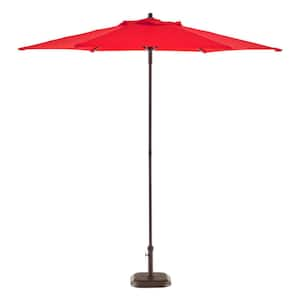
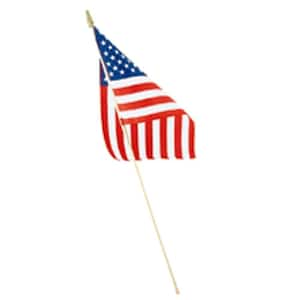
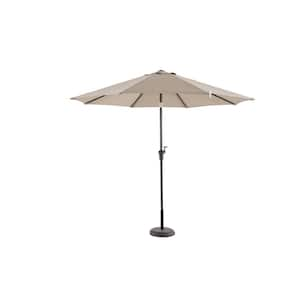
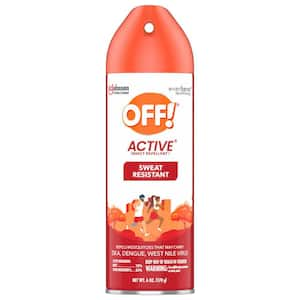
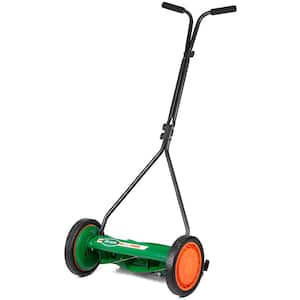
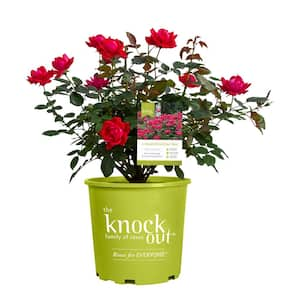
)
/17_514245_S_012_Product%20Image%20(square).jpg?im=Resize=(300,300))
)
)
)
;Resize=(300,300))
/2023_P2_Rain_Barrels_Product%20Image%20(square).jpg?im=Resize=(300,300))
)
)
)
)
;Resize=(300,300))
;Resize=(300,300))
;Resize=(300,300))
)
;Resize=(300,300))
;Resize=(300,300))
)
/12_SOIL_B_0420_Social%20media%20(square).jpg?im=Resize=(300,300))
;Resize=(300,300))
;Resize=(300,300))
;Resize=(300,300))
;Resize=(300,300))
)
;Resize=(300,300))
)
;Resize=(300,300))
;Resize=(300,300))
/18Patio_Camden_Seagrass_5pcSeating_Planters_302468736_DTL3_L_Social%20media%20(square).jpg?im=Resize=(300,300))
;Resize=(300,300))
;Resize=(300,300))
)
;Resize=(300,300))
;Resize=(300,300))
;Resize=(300,300))
;Resize=(300,300))
)
;Resize=(300,300))
)
)
.jpeg?im=Crop,rect=(363.69230769230774,1.2307692307692308,958.7692307692308,958.7692307692308);Resize=(300,300))
;Resize=(300,300))
;Resize=(300,300))
)
)
;Resize=(300,300))
)
)
;Resize=(300,300))
;Resize=(300,300))
)
;Resize=(300,300))
)
)
;Resize=(300,300))
;Resize=(300,300))
)
;Resize=(300,300))
/Capello_Spring_Mum_10in_Social%20media%20(square).jpg?im=Resize=(300,300))
;Resize=(300,300))
)
)
)
)
)
;Resize=(300,300))
)
)
;Resize=(300,300))
;Resize=(300,300))
;Resize=(300,300))
)
)
;Resize=(300,300))











































